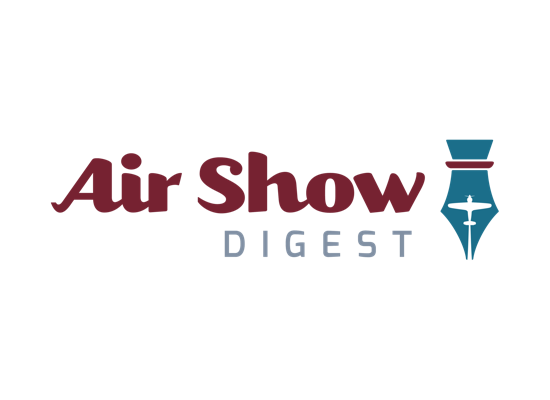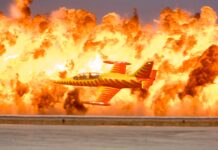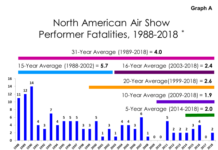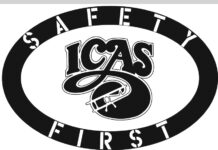During the 2009 air show season, ICAS launched its new ICAS Confidential Reporting System (ICRS) or, as it is more lovingly known, ICARUS. Developed as a tool to help generate data to be used in identifying and mitigating safety hazards in the air show business, the ICARUS system gained momentum and acceptance within the industry as air show professionals began to recognize the completely confidential manner of the new program. Every report submitted is processed through a third-party aviation consulting firm in southern Texas to be sanitized of all information that might otherwise be used to trace the report.
The purpose of this system is twofold. Primarily, it is an avenue that ICAS members may use to voice their concerns about safety issues experienced at air shows. To this end, ICARUS has served its purpose magnificently. Secondarily, but no less important, ICARUS provides the ICAS staff with the ability to identify and track potential hazardous trends within the air show industry, and again, the system showed great results for 2009.
The lynchpin for an effective Safety Management System is trend identification, analysis and mitigation. In 2009, ICAS received eleven ICARUS reports from its members. The trends that are suggested by these reports coincide with the suggested hazard that ICAS staff fields on a near daily basis: communication. Whether it is communication between the performers and the air boss, the air boss and the event organizer, or the performer and the event organizer, ICARUS reports clearly demonstrate that air show professionals need to improve the quality, consistency and openness of communication. Take, for example, these field reports from the 2009 air show season:
- During an air show, a performer was experiencing radio trouble during his act. The air boss was unable to communicate to the performer that he had cleared a regional jet to land on a runway parallel to the performer’s show line. The air boss stated that he was watching the performer closely enough to know that, should the performer veer from the briefed routine, he would have been able to make a call on the radio to alert the performer about the commercial flight, despite the performer’s known radio problems.
- Performers at an air show were highly inconvenienced by locked vehicles in the hot ramp area. There was no way to move the vehicles in case of an emergency. This issue was brought to the attention of show management, briefed the following morning and was not an issue for the remainder of the show.
- At another air show, there was confusing during the briefing due to the different terms used by military and civilian acts. This caused enough confusion so that multiple passes had to be made and the jumpers exited the jump plane 500 feet below what had been briefed.
- There was no scheduled briefing during the practice day of an air show. This resulted in a significant level of confusion for many performers as there was no set schedule. The waiver was then lifted without knowledge of the performers who were still in the act of practicing their shows at the airfield.
- There were also several instances in which the performers either modified or scrapped entirely the briefed sequence. One performer made un-briefed strafing run at a jump aircraft which caused the pilot of the jump plane to take evasive maneuvers. During these evasive maneuvers, the jumpers in the back of the plane all lost their footing.
As an industry, these synopses give us insight into what hazards have affected our industry throughout the past show season, and with further analysis, we can more closely dissect the problems. In nearly 50 percent of the ICARUS reports filed in the 2009 season, the air boss was cited as having some role in either the cause or the correction of the hazard. Analyzing this trend allows us to provide corrective action to mitigate this risk.
As such, at the ICAS Board of Directors meeting at the ICAS Convention in Las Vegas in December, the Board voted unanimously to increase the training and educational opportunities for air bosses. As liaisons to both the performers and the event organizers, a well trained air boss is in the best position to offer real time and effective alleviation of the hazards that come up on a daily basis. The focus of this increased training will be on increasing an air boss’s ability to communicate clearly, concisely and quickly the needs of both the show performers and the support service providers at an air show.
ICAS has already begun to act on the direction provided by the Board of Directors. In 2009, ICAS offered the first ICAS Air Boss Academy. Air bosses and prospective air bosses from around the country traveled to MCAS Miramar in San Diego for this new program. Using the entire show as a living classroom supplemented by actual classroom lecture and discussion, course instructor and long-time air boss Wayne Boggs helped identify best practices, critical processes, and potential pitfalls for the Air Boss Academy participants. The program received high marks from all involved, as well as constructive feedback on how to make it even better. ICAS has scheduled the second annual ICAS Air Boss Academy for October 28, 29 and 30 at the Alliance Air Show in Fort Worth, Texas.
At the recent ICAS Convention in Las Vegas, ICAS tweaked the course content for its Air Shows 201 workshop, renamed it “Air BOSS 201,” and is now using that four-hour program as an additional tool to train and educate current and future air show air bosses.
What does this mean to you? Everything. You can expect more open dialogue between all facets of your show. You can expect more highly trained air bosses. You can expect clearer and more consistent communication. And, over time, you can expect that the risk posed by inadequately trained air bosses and poor communications will continue to receive considerable attention as we continue our efforts to change the culture of air show safety.








